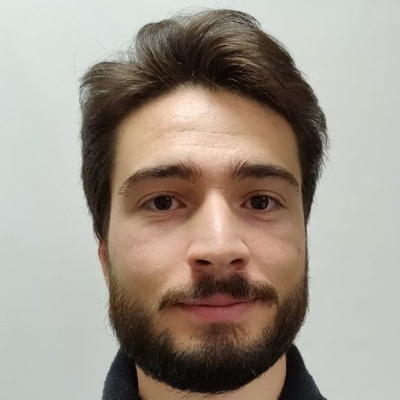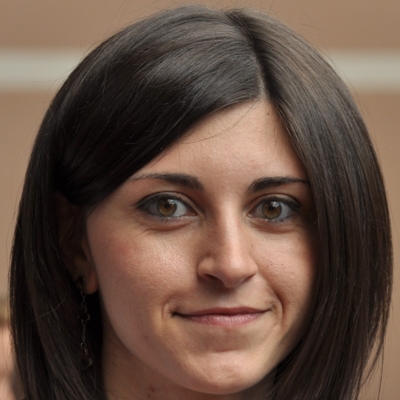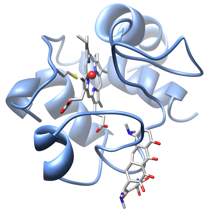About us
Principal Investigator

Fabio Polticelli
Head of the Lab of Theoretical Biology and Bioinformatics since 2004. Ph.D. in Biochemistry from the Sapienza University of Rome (1993); post-doctoral fellow in the Radiobiology Unit of the Medical Research Council (Didcot, UK; 1994) and in the Department of Biochemistry and Molecular Biophysics of the Columbia University (New York, USA; 1998-2000). Since 1995 he is at the Department of Sciences of Roma Tre University.
fabio.polticelli@uniroma3.it
fabio.polticelli@computationalbiology.it
Senior Research Scientist

Daniele Toti
Ph.D. in Computer Science and Engineering from Roma Tre University; CPE from the University of Cambridge; Oracle and Sun Certified Professional. Post-doctoral researcher at Roma Tre University and University of Salerno (2013-2017). Currently serving as a Tenure-Track Assistant Professor at the Catholic University of the Sacred Heart. His research activity revolves around semantic knowledge discovery from unstructured biomedical sources and development of advanced bioinformatics solutions and tools. He participated in the PRAISED, ASSIST, LIBRA, LIBRAWA, DockingApp and DockingApp RF projects.
toti@dia.uniroma3.it
daniele.toti@computationalbiology.it
Graduate Students

Gabriele Macari
Master in Science in Bioinformatics from Tor Vergata University. His Ph.D. project revolves around the development of bioinformatics solutions and tools for rational drug design, molecular docking and binding site prediction. His expertise includes programming skills (Python), scripting (Bash), molecular dynamics simulations and docking.
gabriele.macari@uniroma3.it

Andrea Pasquadibisceglie
Master in Science in Biology from Roma Tre University. His Ph.D. project is focused on the study of structural and functional properties of the solute carrier superfamily (SLC). SLC transporters are involved in many physiological and pathological functions, thus study of their structural and functional properties holds a great biomedical relevance. Main techniques include molecular dynamics simulation, molecular docking and ab initio molecular modeling.
andrea.pasquadibisceglie@uniroma3.it
Former Lab Members

Massimiliano Bizai
Master in Science in Biology from Roma Tre University. His Ph.D. project concerned the in silico structural genomics of human pathogens for the development of new drugs. Focus of his research activity was the study of unknown function proteins encoded by the human pathogens Streptococcus mutans and Trypanosoma brucei.
massimiliano.bizai@uniroma3.it

Valentina Brandi
Master in Science in Biology from Roma Tre University. Her Ph.D. project was focused on the study of structural and functional properties of huntingtin, a protein of great biomedical importance. It involved ab initio molecular modeling and molecular docking techniques.
valentina.brandi@uniroma3.it

Silvia Caprari
Master in Science in Biology and Ph.D. in Biomolecular Sciences from Roma Tre University. Her main research activity concerned the prediction of the structural and functional properties of unknown function proteins encoded by the human pathogen Pseudomonas aeruginosa. Main techniques included ab initio protein structure prediction, homology modeling and docking.
silvia.caprari@uniroma3.it

Elena Di Muzio
Master in Science in Bioinformatics from the University of Rome "Tor Vergata". Her Ph.D. project was focused on virtual screening for protein function annotation and drug discovery. She worked on the development of an automated pipeline for the in silico screening of large libraries of compounds by docking techniques with the final aim of identifying novel antibacterial lead compounds.
elena.dimuzio@uniroma3.it

Valentina Tortosa
Master in Science in Biology from Roma Tre University. Her Ph.D. project was focused on the study of structural and functional properties of the major facilitator superfamily (MFS). Changes in function, expression, or localization of MFS transporters are associated with various human diseases. Main techniques included molecular dynamics simulation and molecular docking techniques.
valentina.tortosa@uniroma3.it

Le Viet Hung
Master in Science in Applied Mathematics and Ph.D. in Biomolecular Sciences from Roma Tre University. His research activity involved the development of software tools for the prediction of the catalytic activity and ligand binding properties of unknown function proteins. He participated in the development of the Java-based applications ASSIST and LIBRA.
viethung.le@uniroma3.it


